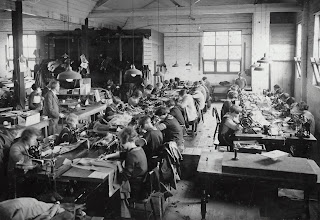The Impact of Industrial Revolution on Society and Economy
The Industrial Revolution, which took place in the 18th and 19th centuries, was a period of significant change in human history. It marked the transition from manual labor to machine-powered manufacturing, and it had a profound impact on society and the economy.
The Industrial Revolution started in Britain, and it spread rapidly to other parts of the world, including Europe, North America, and Japan. It was characterized by the introduction of new machines and technologies, such as the steam engine, spinning jenny, power loom, and the cotton gin. These innovations enabled manufacturers to produce goods on a large scale, leading to the development of mass production.
The impact of the Industrial Revolution on society was both positive and negative. On the positive side, it brought about significant improvements in living standards, as people had access to more goods at lower prices. The increased productivity also meant that people could work fewer hours for the same amount of pay, leading to a reduction in working hours and an increase in leisure time.
However, the Industrial Revolution also had some negative impacts on society. The rapid growth of urbanization led to the rise of slums and the exploitation of workers. The new manufacturing processes required unskilled labor, which meant that workers were often paid low wages and worked in dangerous conditions. The formation of labor unions was a response to these conditions, as workers sought to improve their wages and working conditions.
The Industrial Revolution also had a significant impact on the economy. It led to the growth of capitalism and the emergence of a new class of wealthy industrialists. The mass production of goods led to increased competition and lower prices, which benefited consumers. The growth of railways and other transportation systems also facilitated trade and commerce, leading to the expansion of markets.
However, the Industrial Revolution also led to economic inequality, as the wealth created by the new technologies and industries was not evenly distributed. The gap between the rich and poor widened, and many workers remained trapped in poverty despite the overall increase in living standards.
In conclusion, the Industrial Revolution was a period of significant change in human history, with both positive and negative impacts on society and the economy. While it brought about many improvements in living standards and increased productivity, it also led to exploitation and economic inequality. Understanding the impact of the Industrial Revolution can help us appreciate the challenges and opportunities presented by technological change in our own time.


Comments
Post a Comment